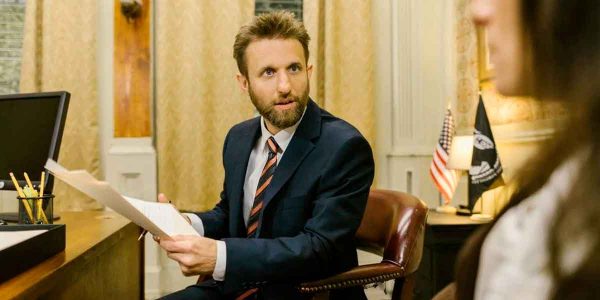When there is no trust, the probate procedure results in a court order specifying how assets will be distributed to the heirs. The family must abide by this legal directive and may use it as evidence in court to resolve any lingering estate-related disputes.
Finally, the court issues a final order that concludes the case after the personal representative has distributed all assets. So, let’s understand what does probate attorney do when there’s no trust involved.
What is a Probate Lawyer?
Estate attorneys and probate lawyers assist non-lawyer clients in finishing their duties as executors, personal representatives, or administrators of estates. As they navigate the probate process, they provide the maximum or as little assistance as they require. The probate procedure entails paying off the decedent’s debts and allocating the estate’s assets by the desire or state law.
What does a Probate Attorney do when there’s a Trust involved
If the decedent had a final will that was complete, valid, and signed before kicking off the bucket, the administrator might hire a probate attorney to help them as they proceed through the steps of the probate process by the terms of the need. This is often a consulting position.
The probate attorney may represent a celebration in probate litigation. If there’s a challenge to the desire—if a beneficiary thinks the will is invalid, was signed under duress, or under the undue influence of another. Someone wants to challenge being omitted from a will. There are numerous grounds for contesting a will (although most will undergo probate without a problem).
What does a Probate Attorney do when there’s no Trust involved
If a person didn’t leave a written will, then they allegedly to their died “intestate.” In this case, the inheritance law determines who inherits the estate. For example, the court entitles the surviving spouse to any or all or some of their deceased spouse’s assets, counting on their state’s intestate laws. These rules can change lots.
It’s crucial to recollect that the estate administrator and the probate attorney must distribute assets according to state intestacy laws. State law governs the distribution of estate assets. Irrespective of what the human said while they were alive or what proportion of money some relations needed.
In this case, a probate attorney could assist a beloved in petitioning the court to be appointed because of the estate administrator. Alternatively, they could be hired after the individual has been appointed administrator by the judicature judge.
A relative must first obtain “renunciations” from the deceased’s other relatives to administer the estate. A renunciation could be a formal declaration that provides the correct to manage the estate. The administrator can receive assistance from a probate attorney with the probate process after the attorney helps to secure and file these statements with the tribunal.
What Does a Probate Attorney Do?
A probate lawyer could retain solely to supply legal counsel. Or, they might use it to hold out any of the duties above. Executors and administrators frequently rely more on the local probate attorney and their staff once they are out of state. Some law firms specialize in offering comprehensive services specifically for this case.
Locate, list, and secure the decedent’s estate, including their bank accounts, private estate, vehicles, land, and more.
- Recognize and get insurance policies.
- Obtain valuations for the deceased person’s property
- Control the estate’s checking account.
- To prepare the ultimate taxation and death duty returns for the deceased, open a tax account or work with an inside report.
- Determine the legality of certain debts and supply advice on debt repayment.
- Prepare and submit the paperwork needed by a judicature.
Conclusion
When there’s no will, the probate procedure leads to a writ. That specifies the heirs and the way the assets will distribute. The family must abide by this legal directive and will use it as evidence in court. To resolve any lingering estate-related disputes. The court issues a final order that concludes the case after the non-public representative has distributed all assets.







